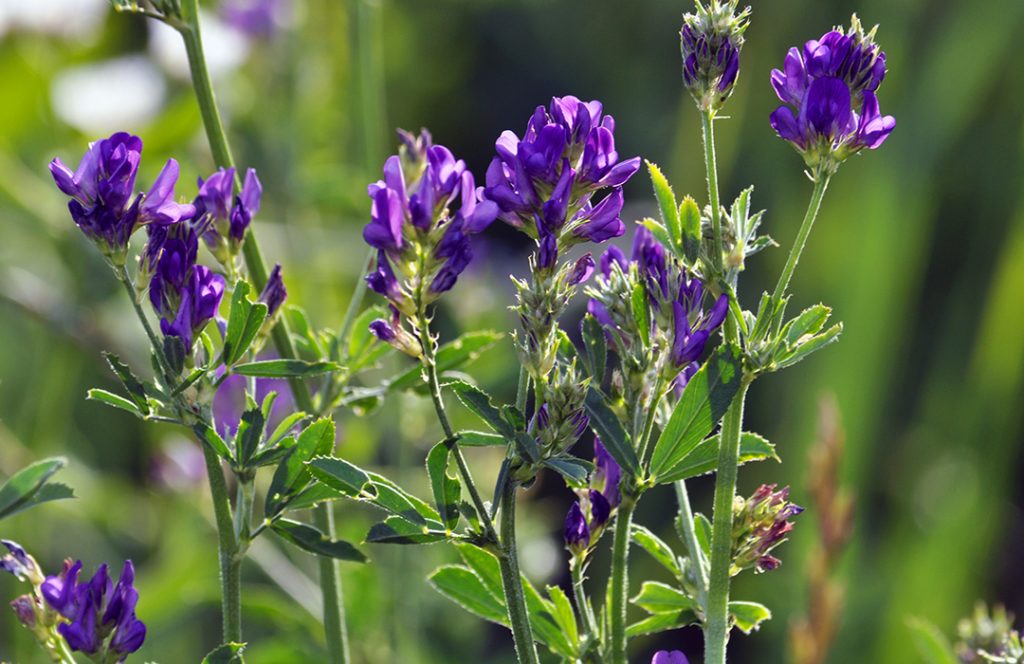The alfalfa is known as “the king of herbage”. Alfalfa’s scientific name is Medicago sativa, but it goes by several other names, including buffalo herb, Lucerne, and purple medic. Alfalfa is a part of the legume family, but it’s also considered an herb.
People typically consume alfalfa as an herbal supplement. the leaves or seeds are typically a fair source of vitamin K and also contain many other nutrients, including vitamin C, copper, manganese, and folate.
Health Benefits
Alfalfa’s stout nutrient profile means that it provides significant health benefits. It’s also used in alternative medicine to help treat a wide variety of health issues.
Lower Cholesterol
Alfalfa’s cholesterol-lowering ability is its best studied health benefit to date.
The cholesterol-lowering effect of alfalfa is attributed to its high content of saponins, which are plant compounds known to lower cholesterol levels.They do this by decreasing the absorption of cholesterol in the gut and increasing the excretion of compounds used to create new cholesterol
Effective Blood Clotting
A single serving of alfalfa provides 13% of your recommended daily allowance of vitamin K, which is an important vitamin for blood clotting. Vitamin K, along with chlorophyll and iron, also promotes blood production, which can help people with anemia. If you take the blood-thinning medication Coumadin, you may want to limit your intake, however, as Vitamin K can decrease its effectiveness.
Steady Blood Sugar
Alfalfa is a fiber-rich food and may help to control blood sugar levels by slowing the absorption of glucose into the intestines. As a result, it may help to control diabetes and prediabetes.
Healthy Urinary Tract
As a natural diuretic, alfalfa promotes urine flow, which can help to clear out harmful bacteria. While it’s not a proven method to treat an active urinary tract infection, it may help prevent an infection from starting.
Regulate immune, antioxidant and anti-aging functions
Perennial consumption of alfalfa food can supplement flavonoids, can prevent cancer, prevent bone hyperplasia, prostatitis, reduce the incidence of cardiovascular disease, alleviate menopausal discomfort and other functions. Flavonoids and isoflavones have strong antioxidant function, which can clear reactive oxygen species in human body, protect lipids, proteins and chromosomes from reactive oxygen species attack, prevent cytopathia, enhance immunity and delay aging.
Lower Risk of Certain Diseases
Free radicals in the body can lead to oxidative stress and cell damage, increasing your risk for heart disease, diabetes, cancer, Alzheimer’s disease, and more. The antioxidants in alfalfa fight free radicals and help your body to fight those diseases as well.

